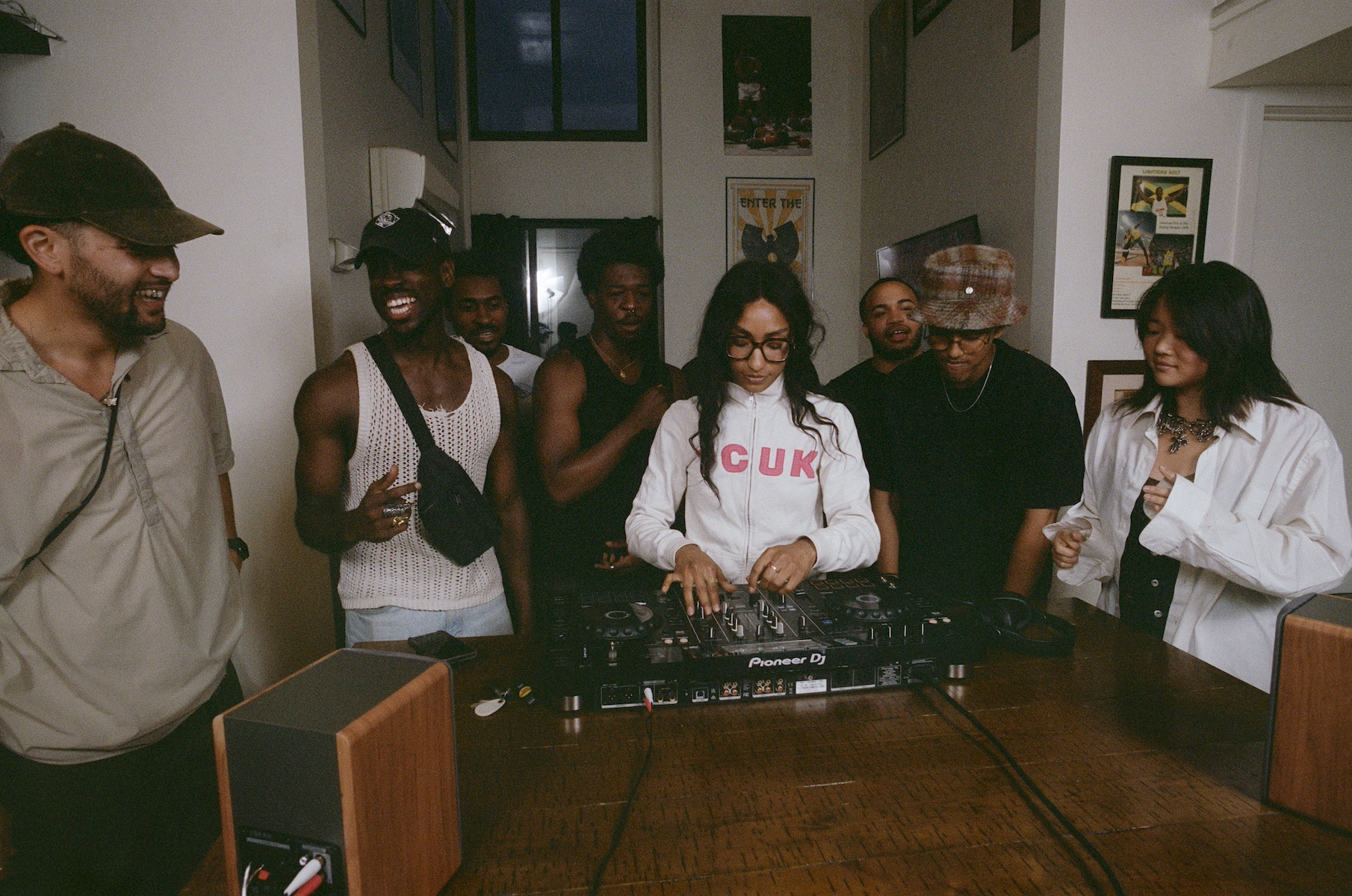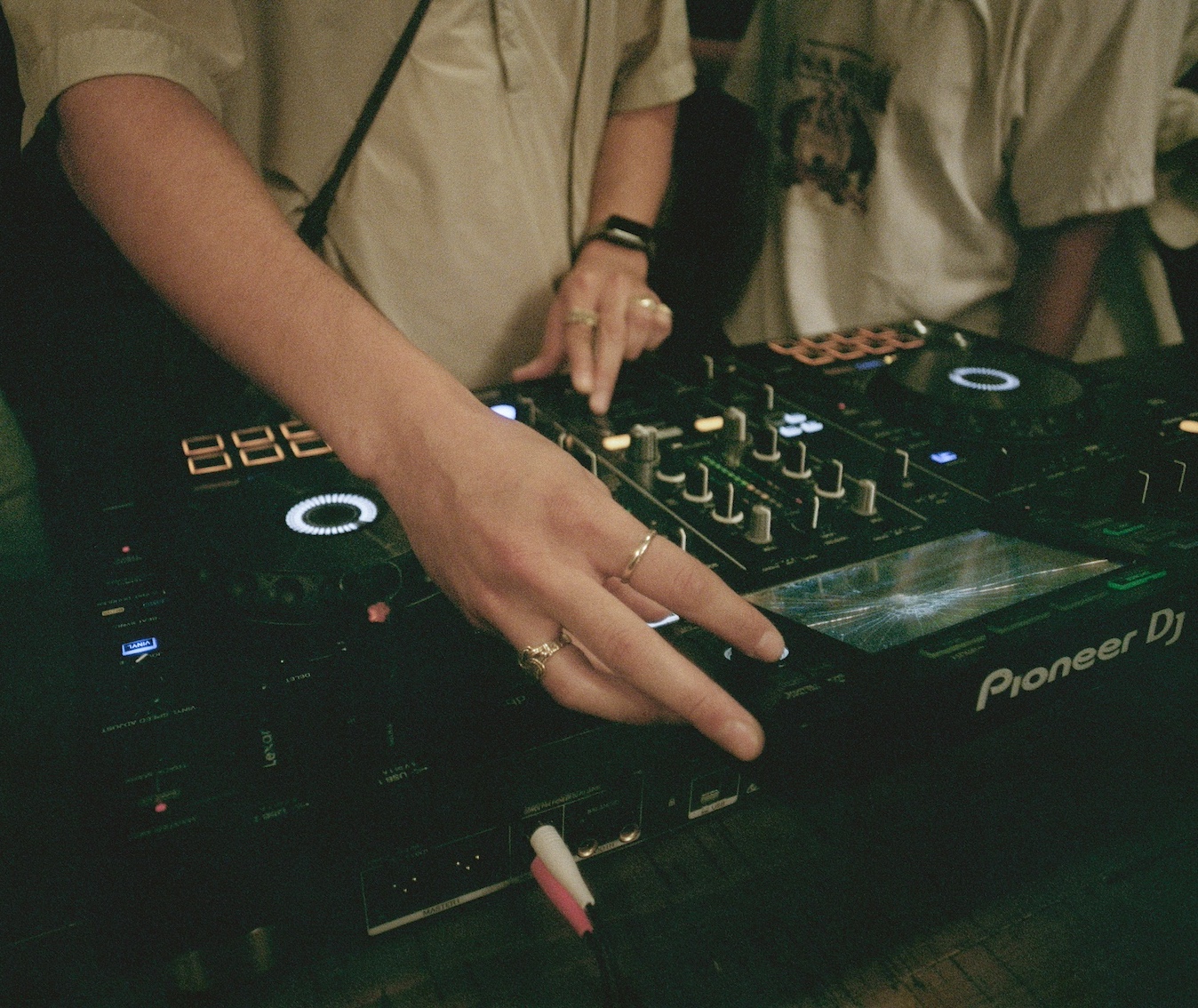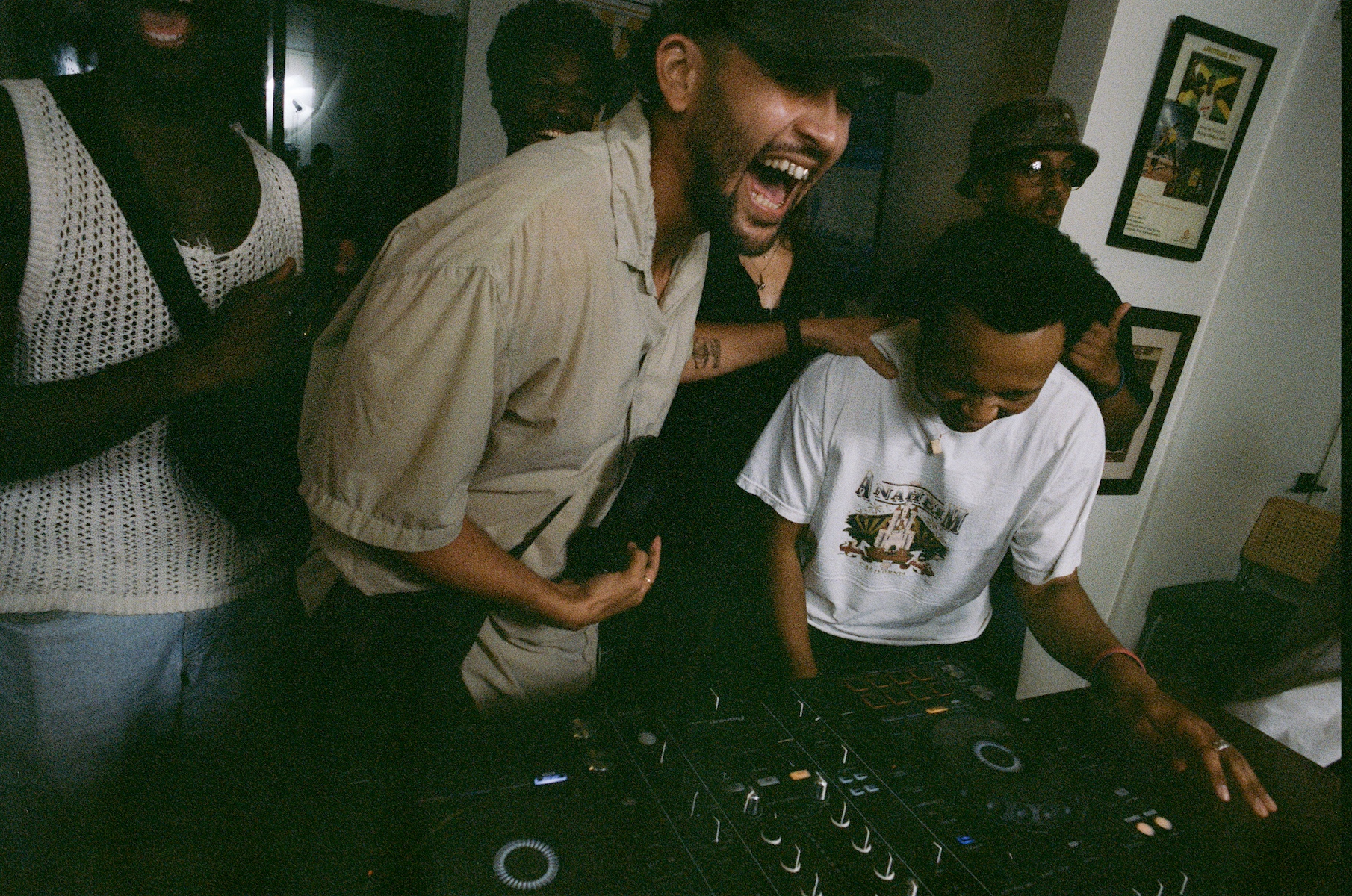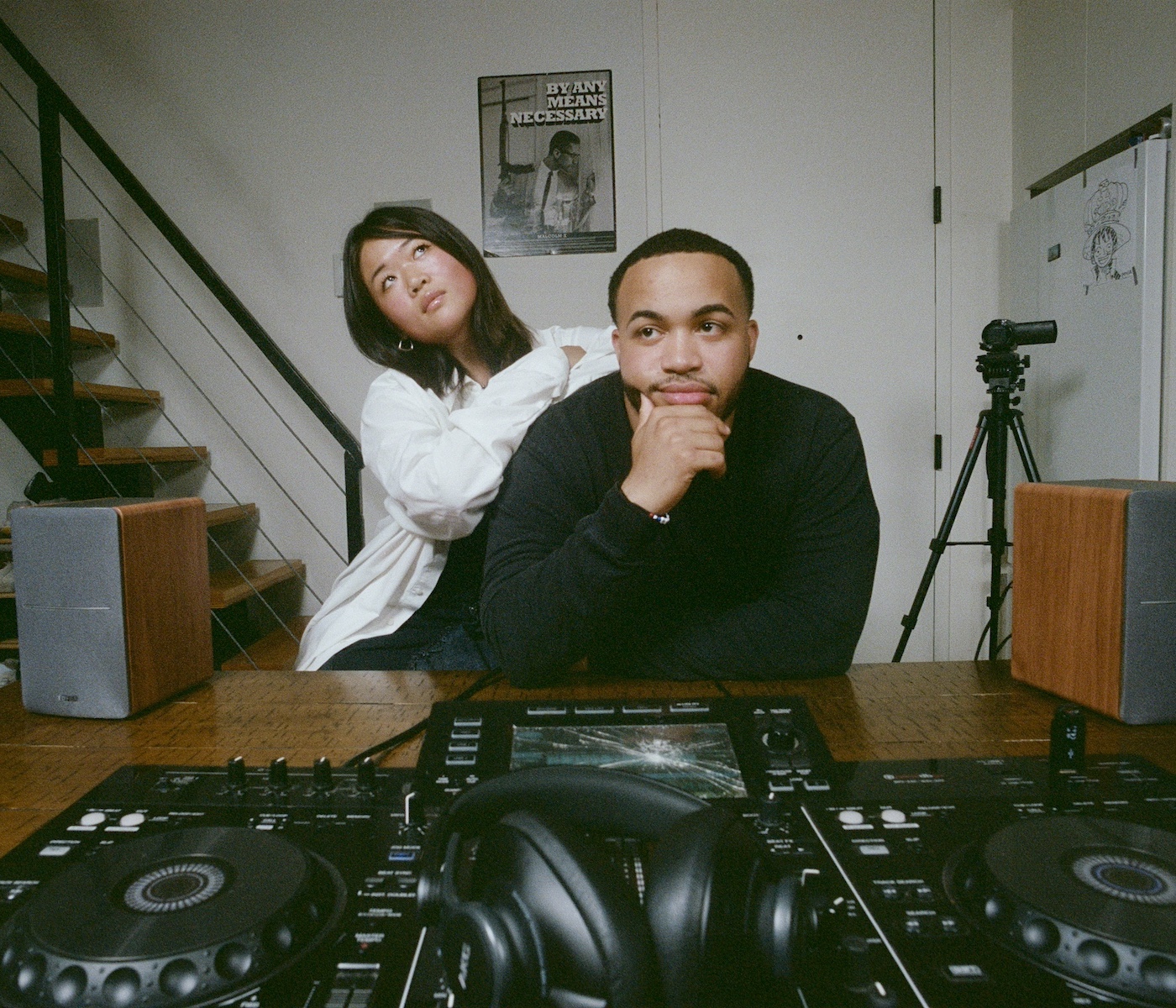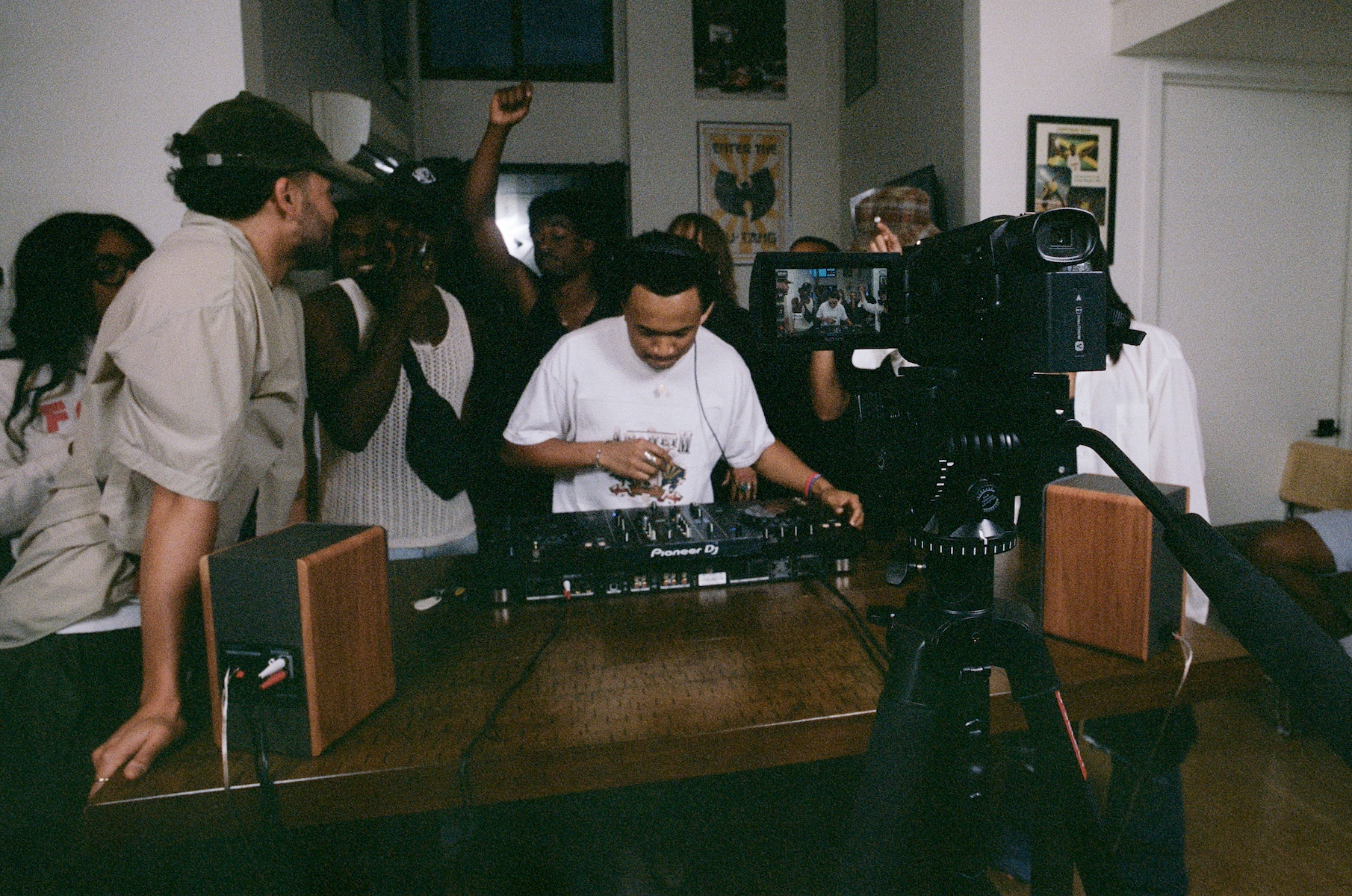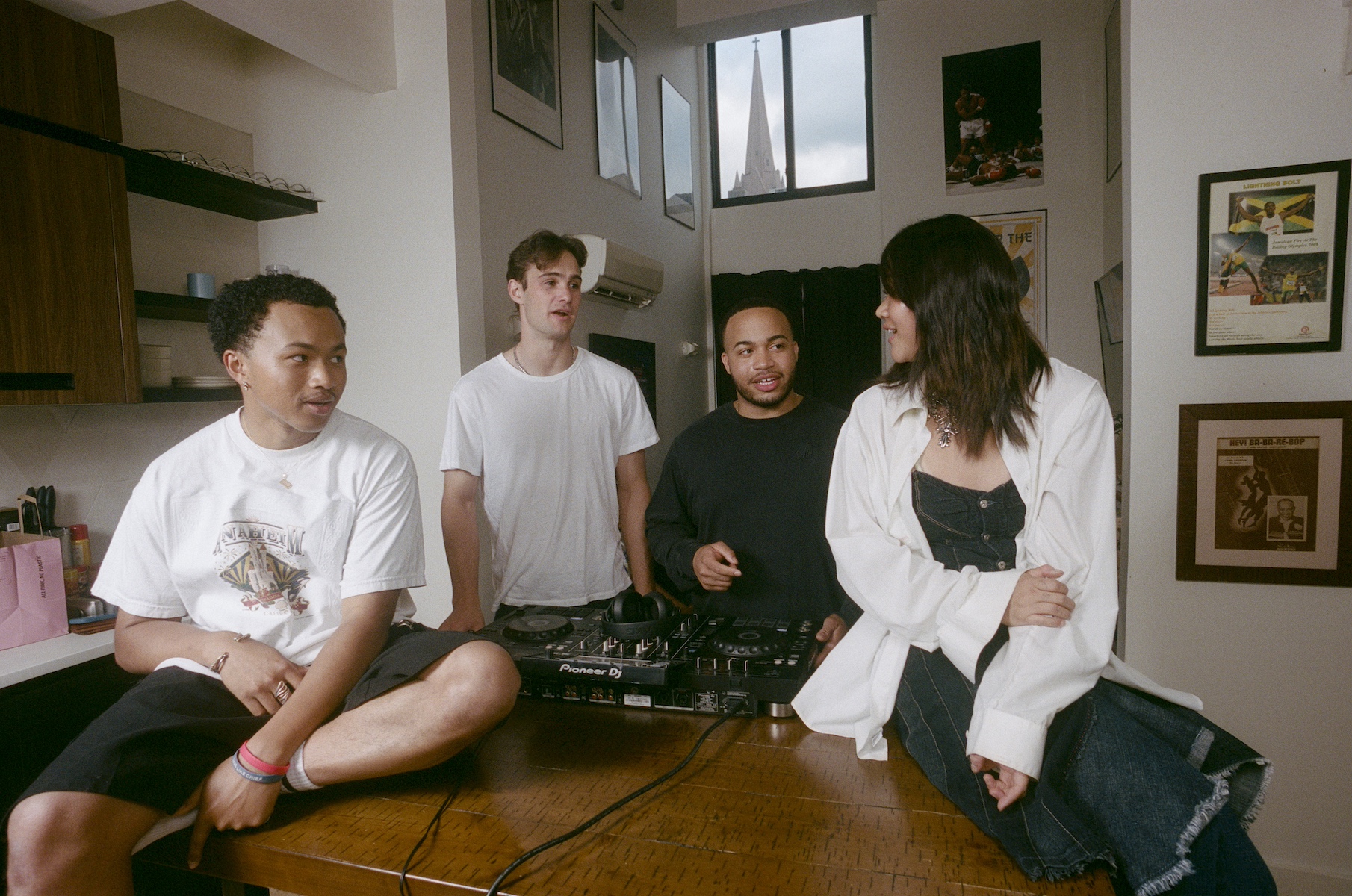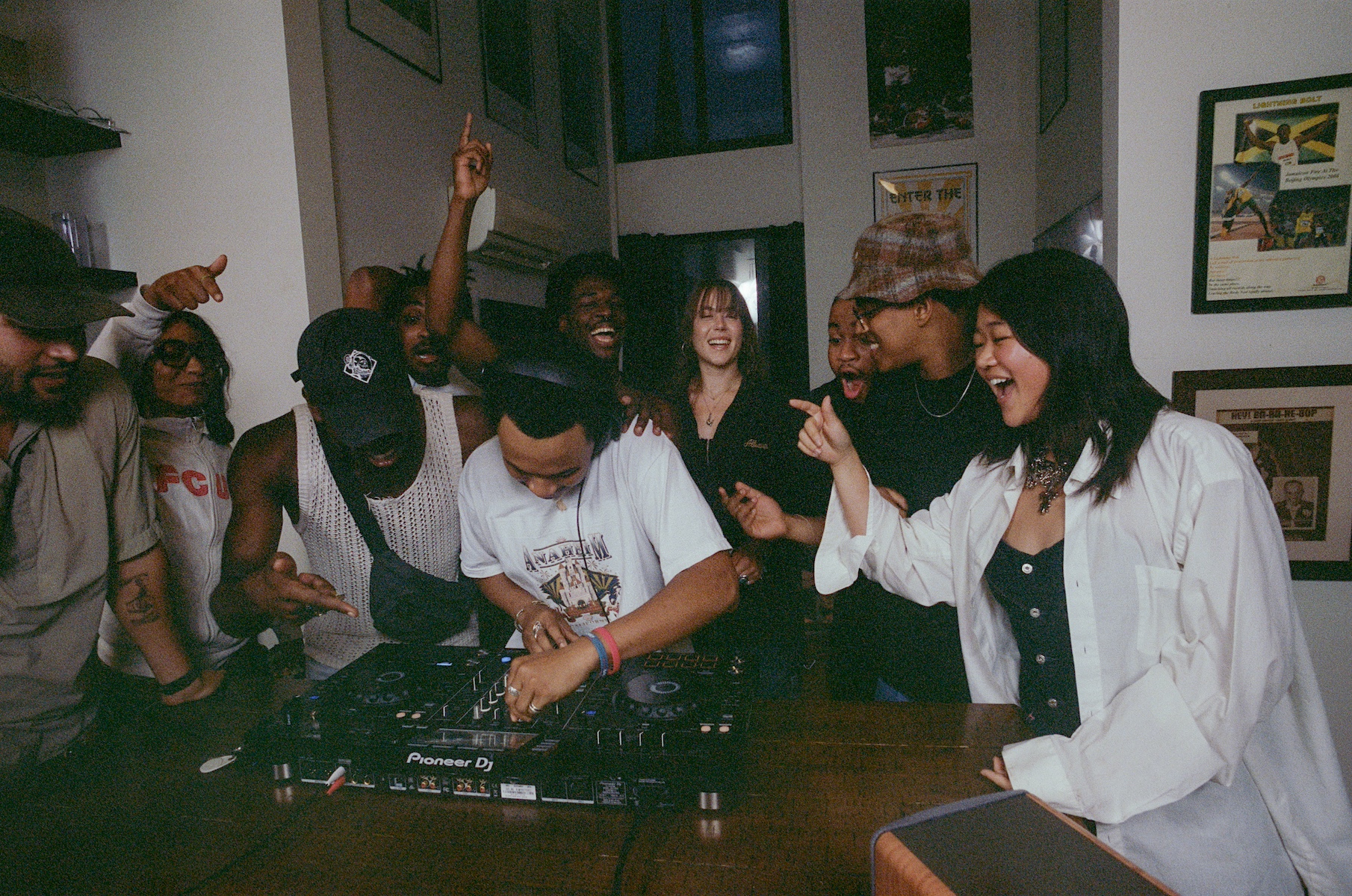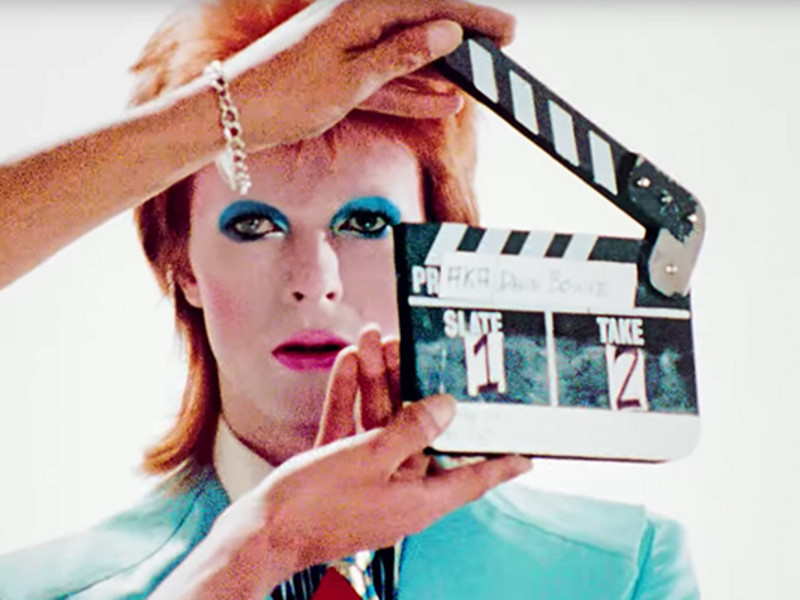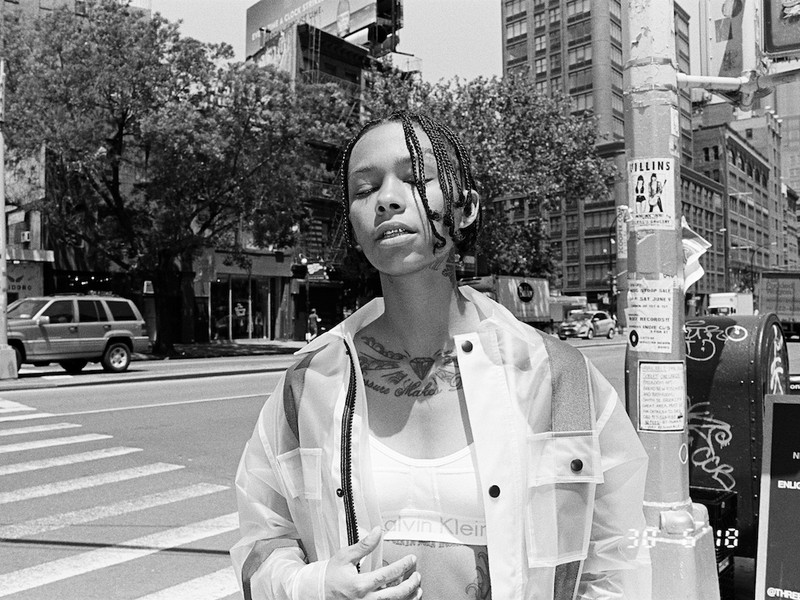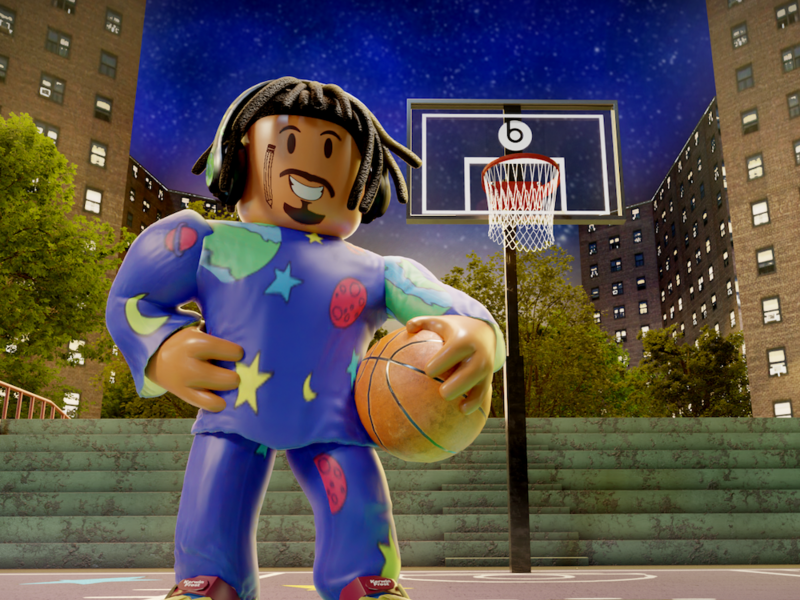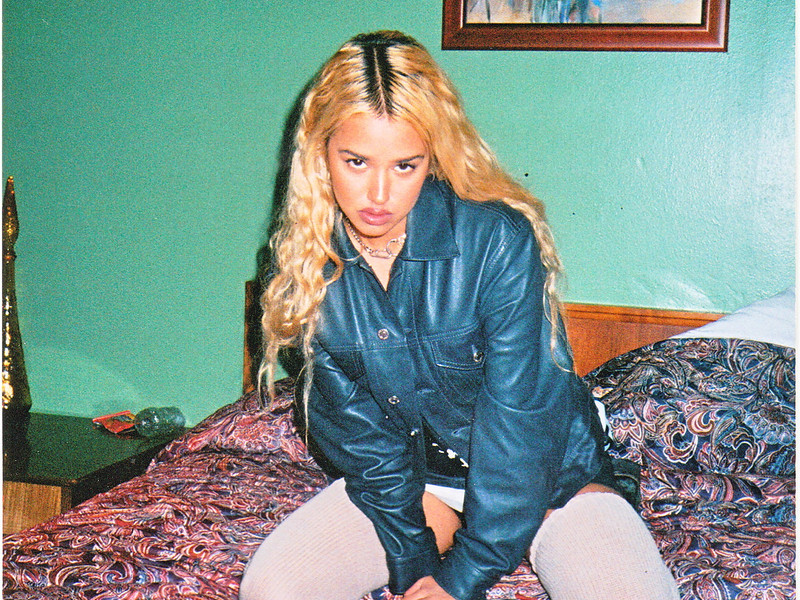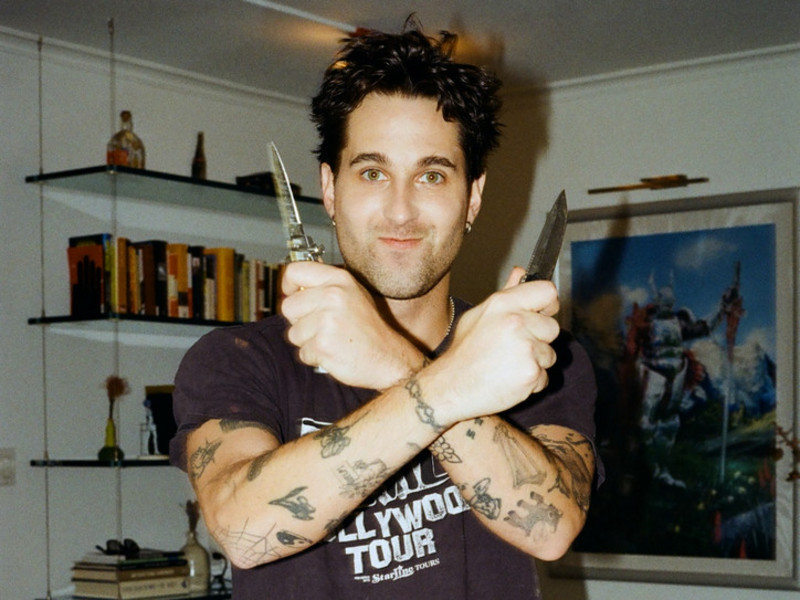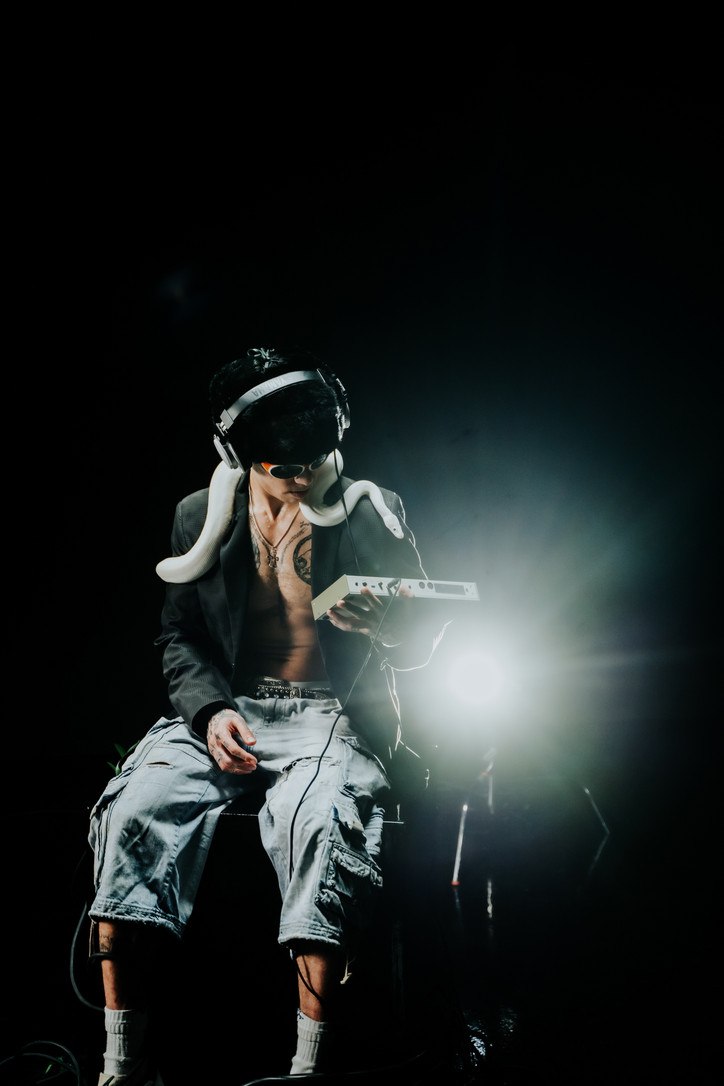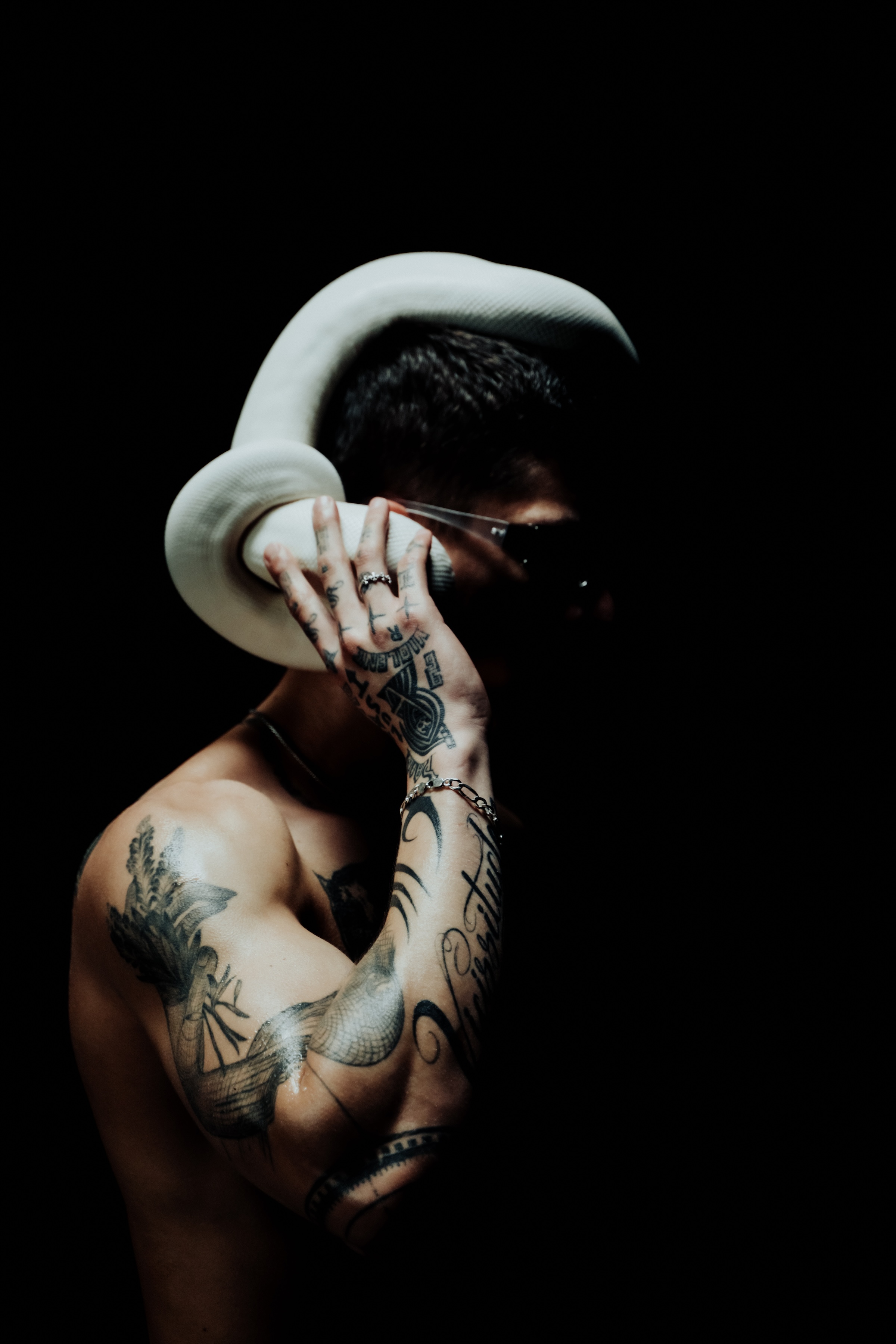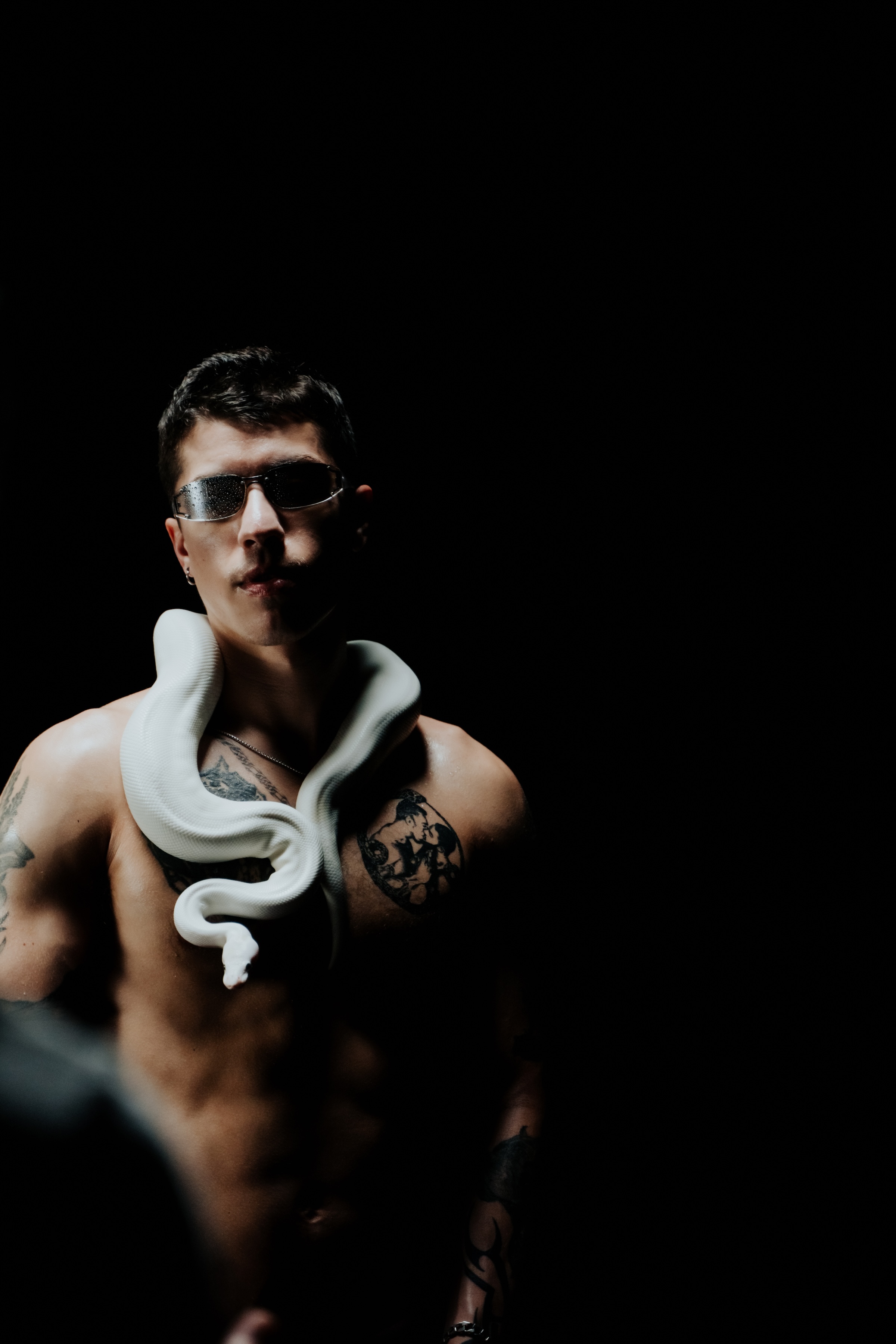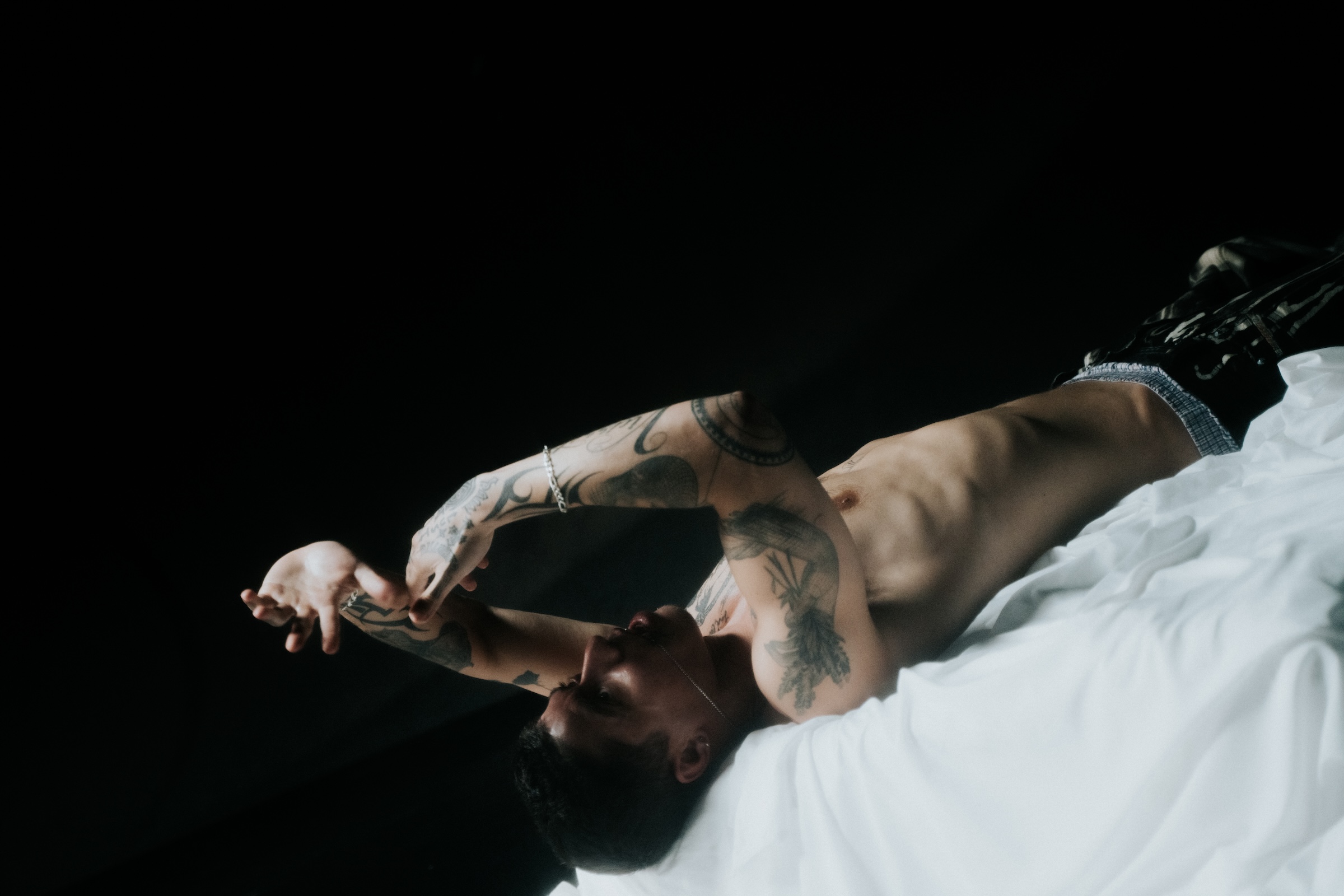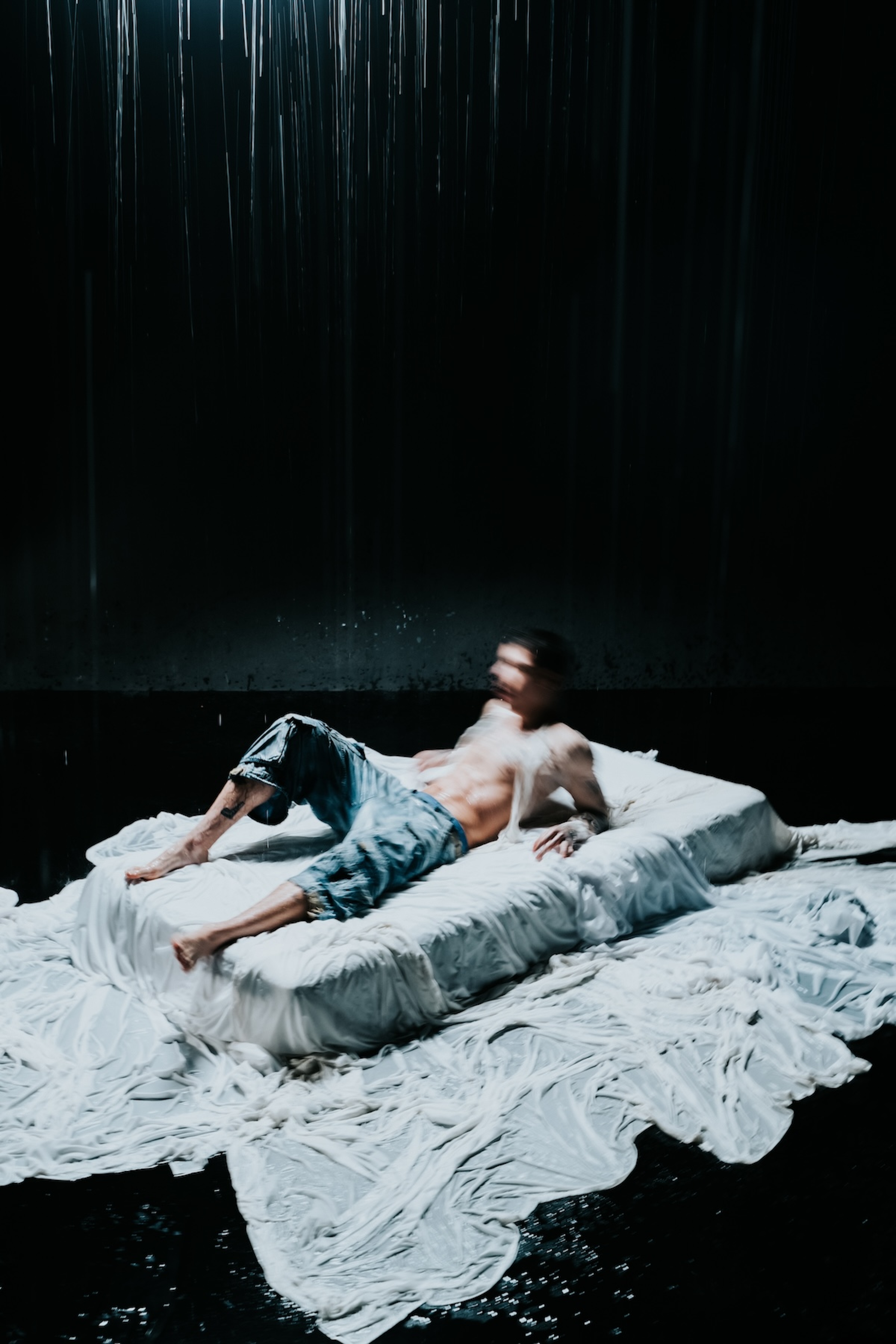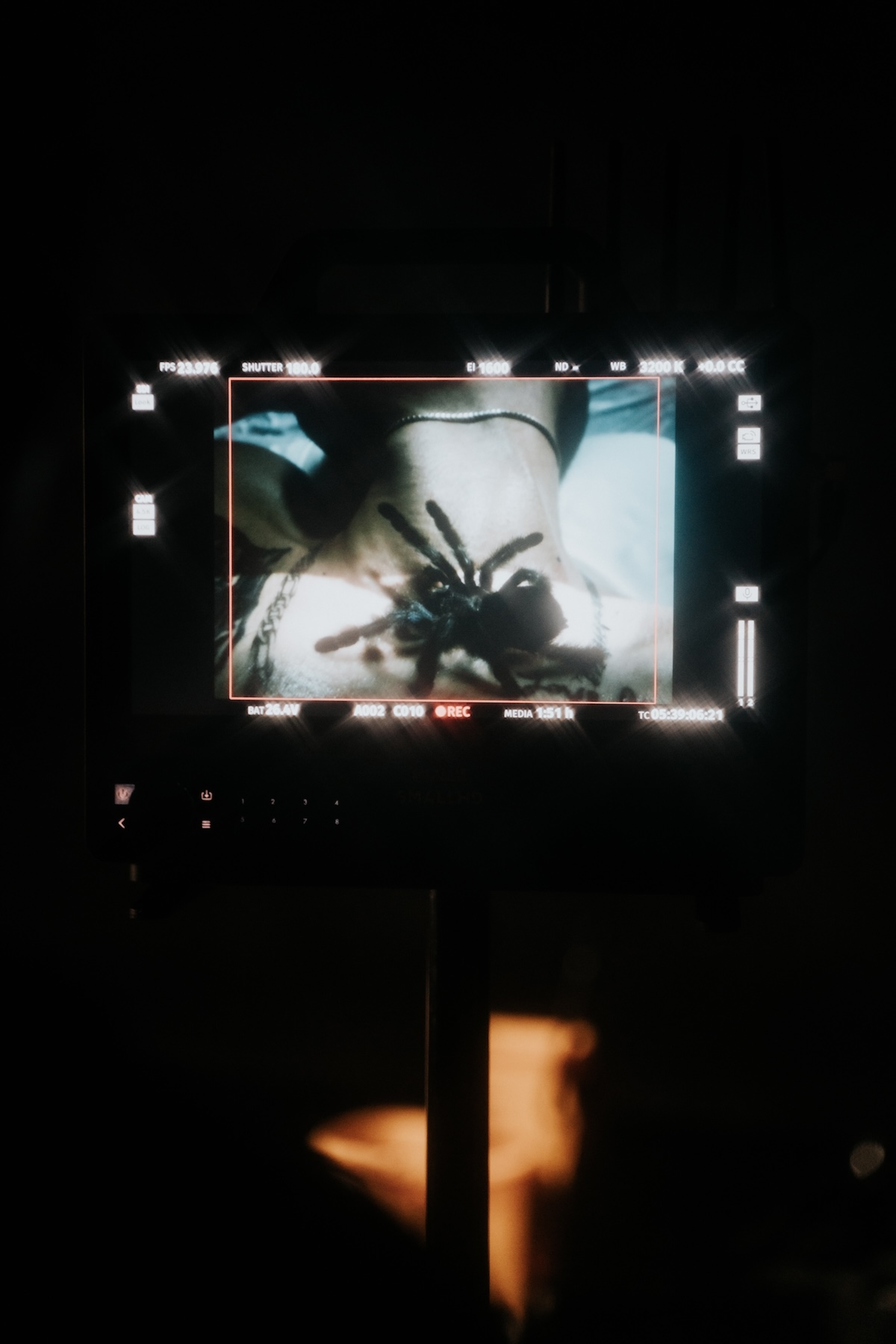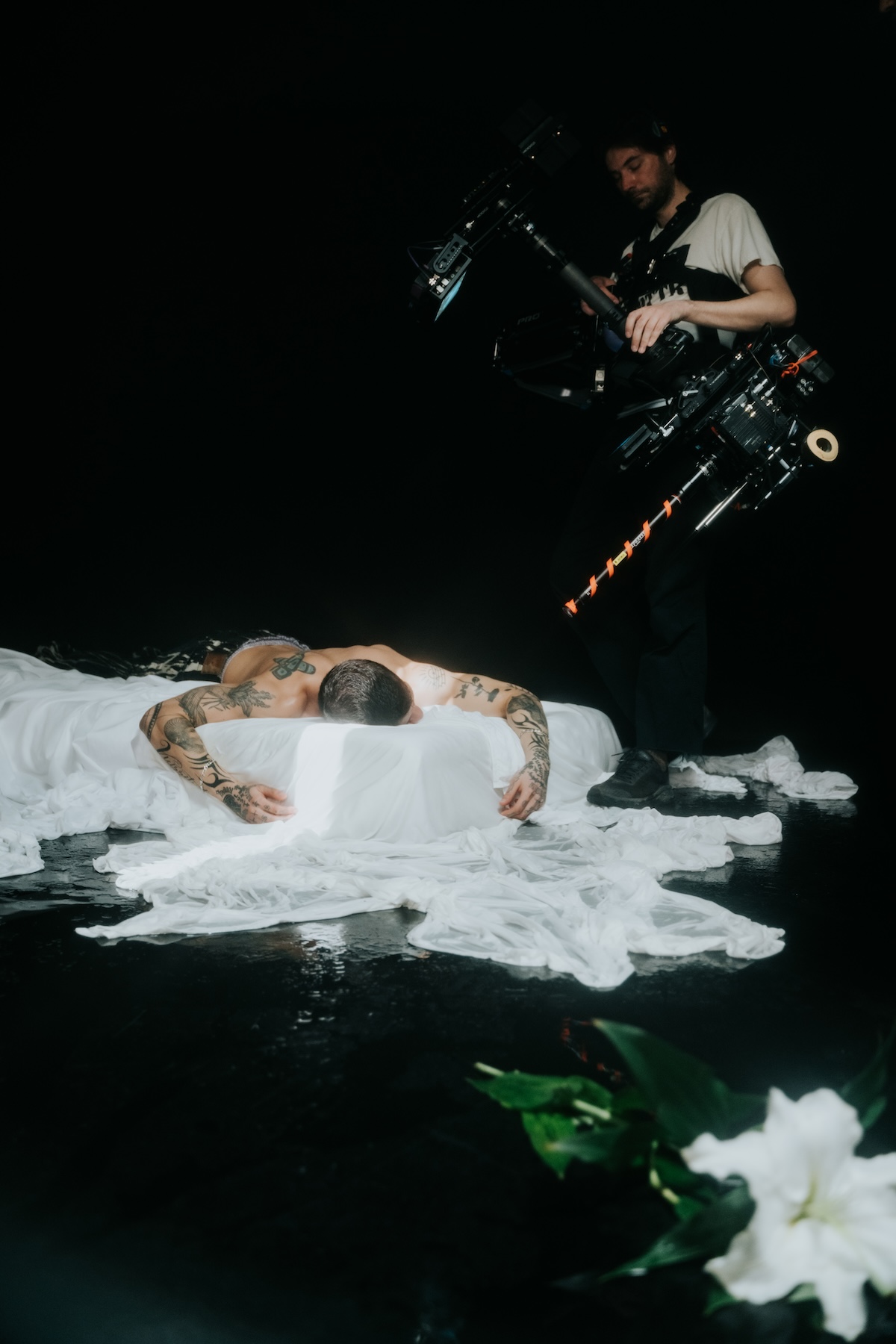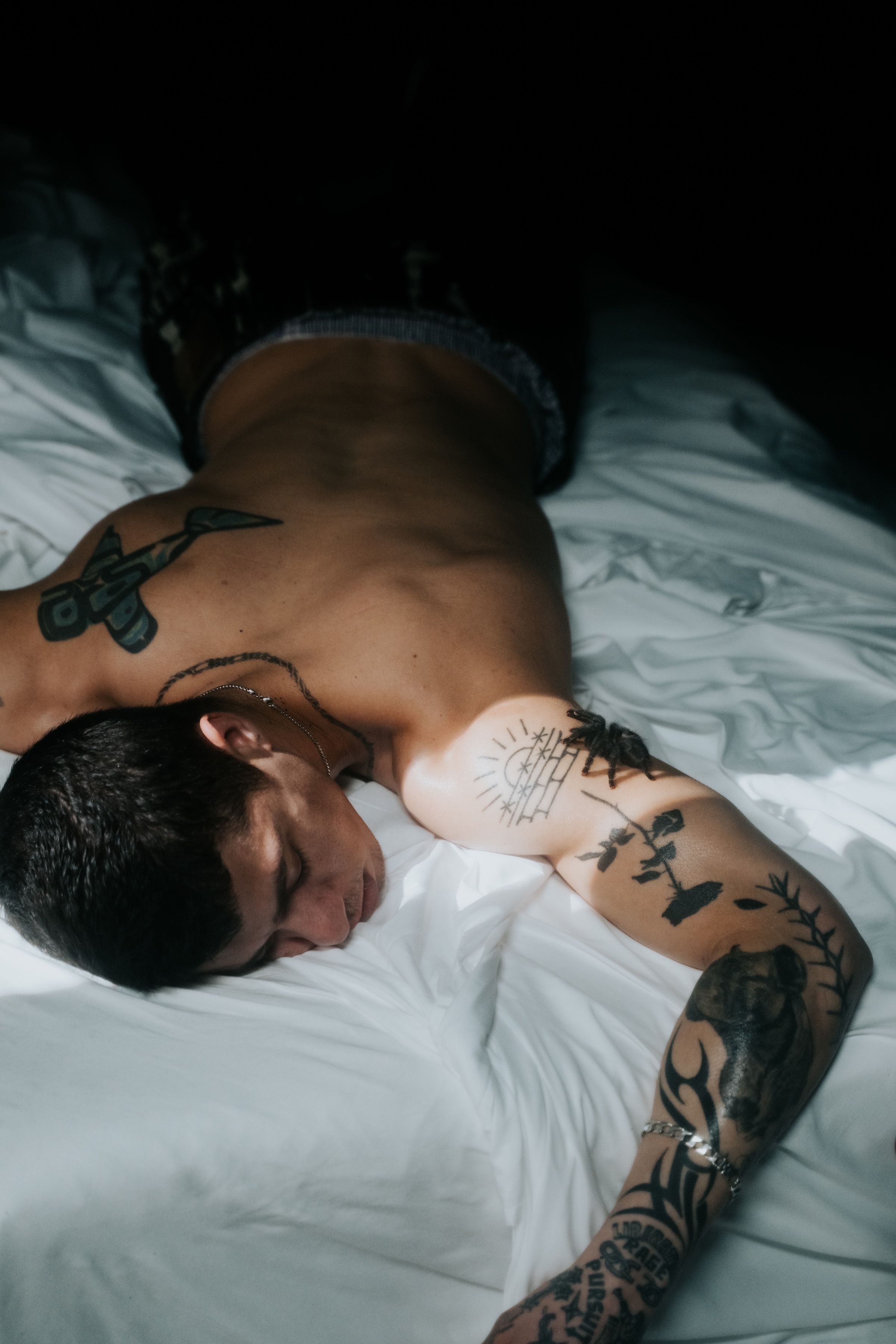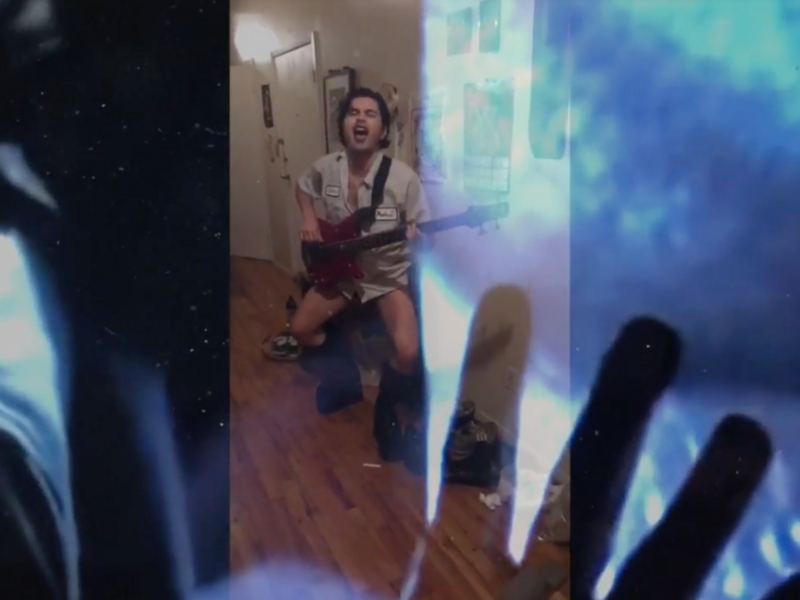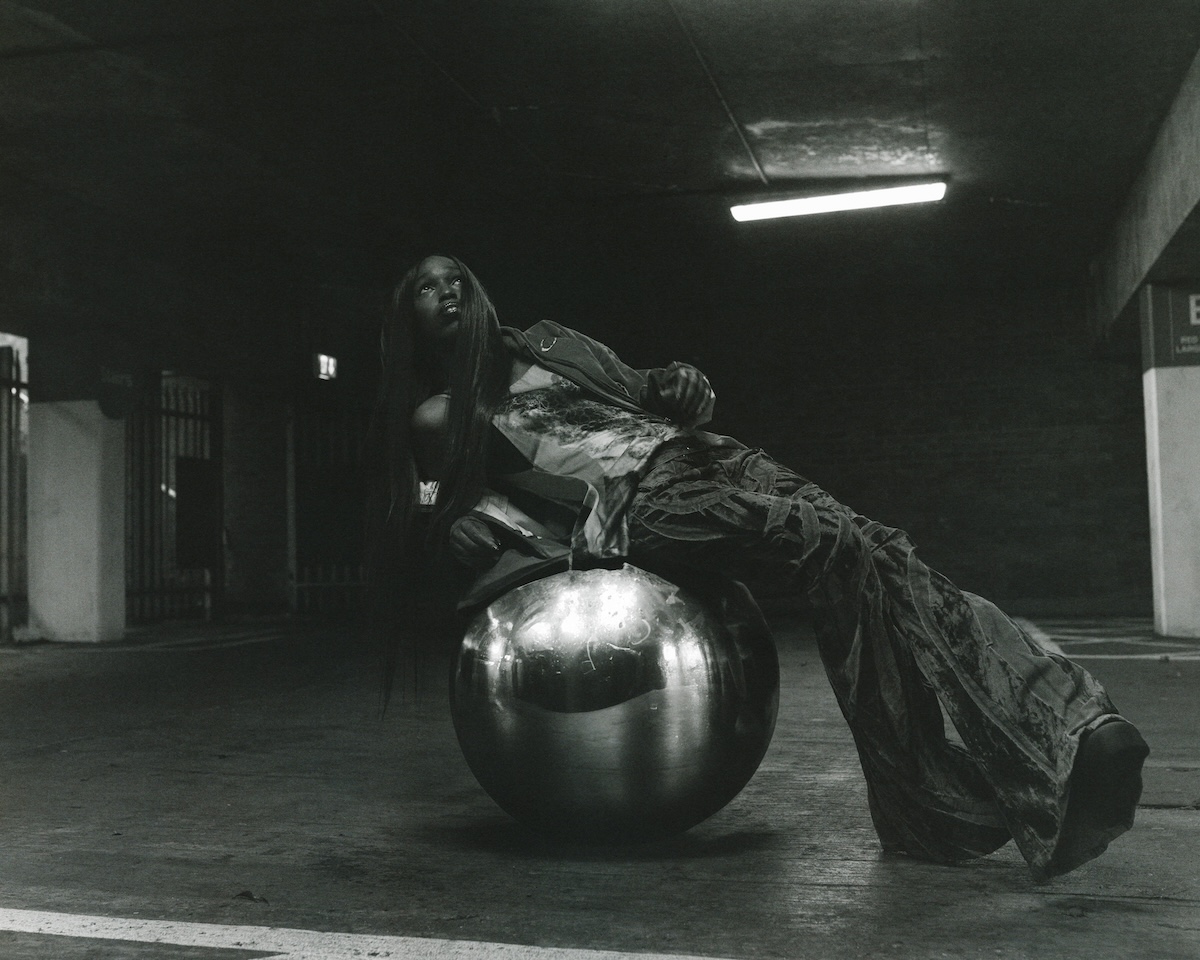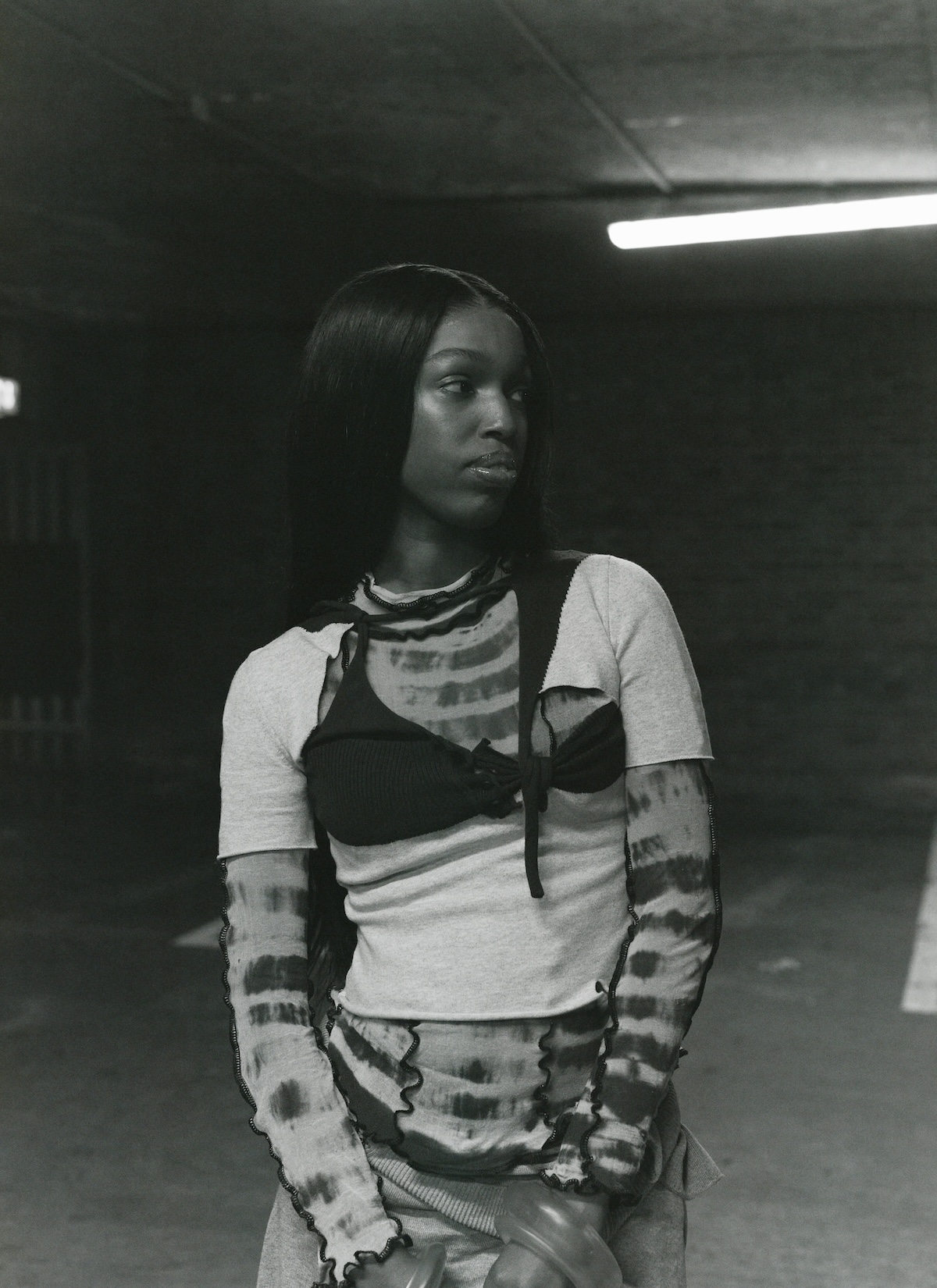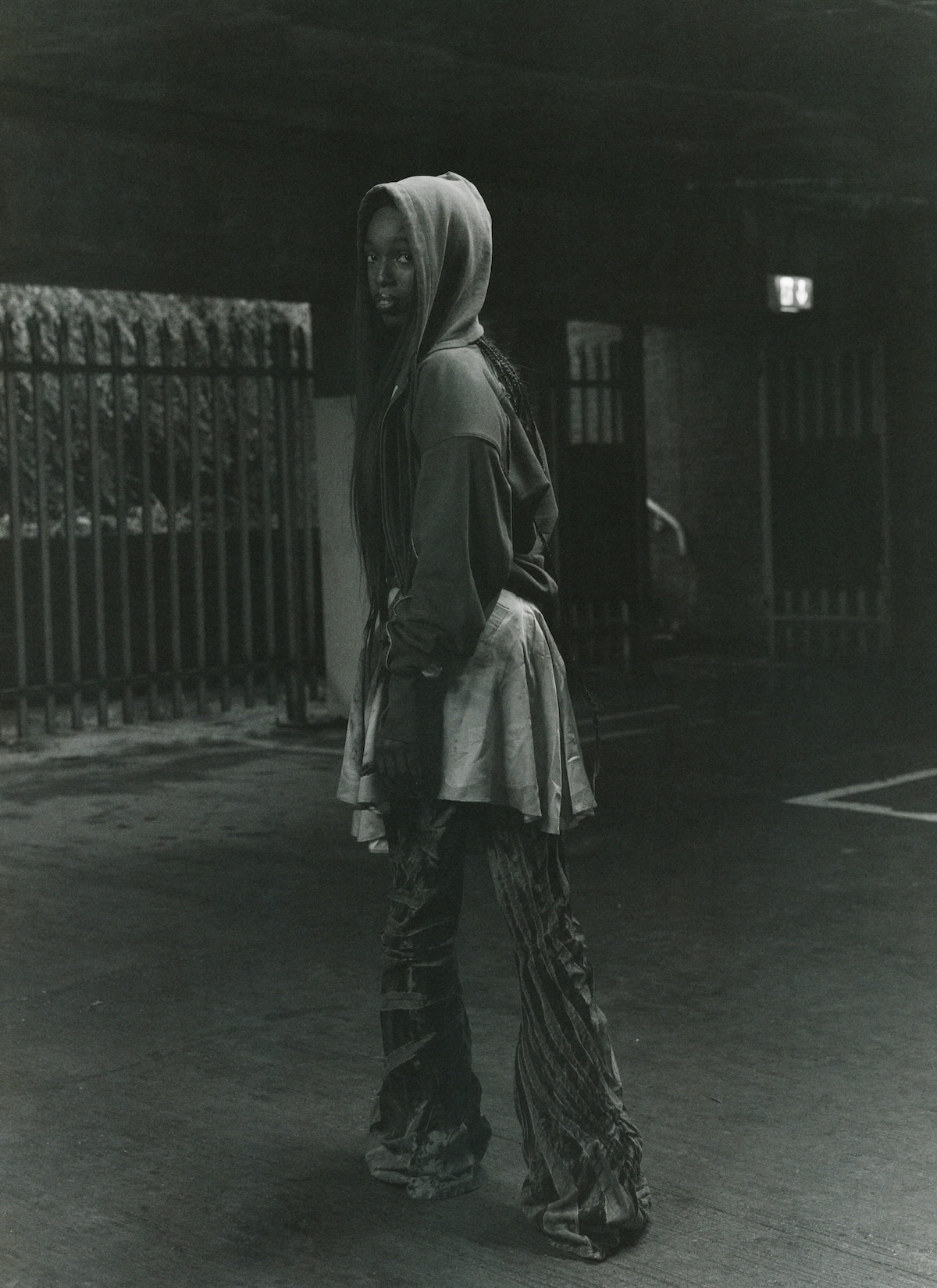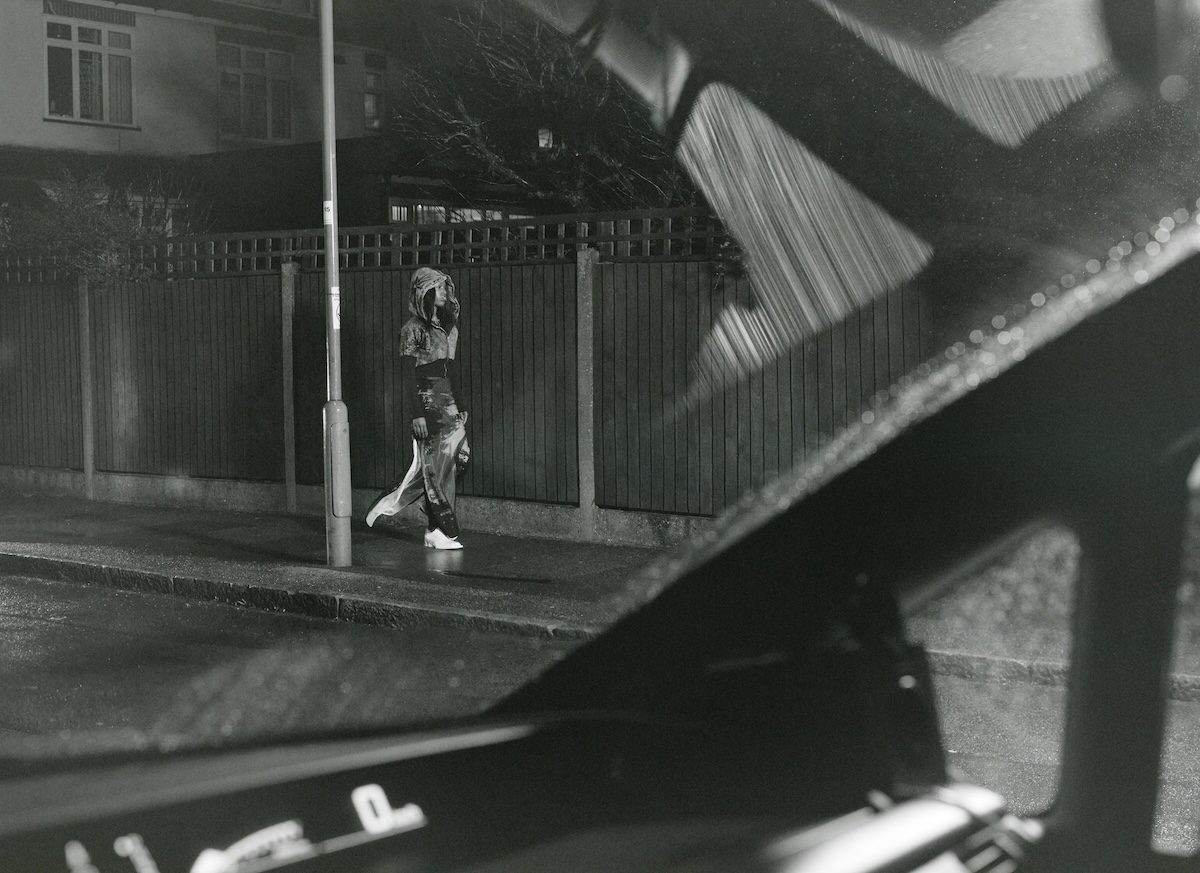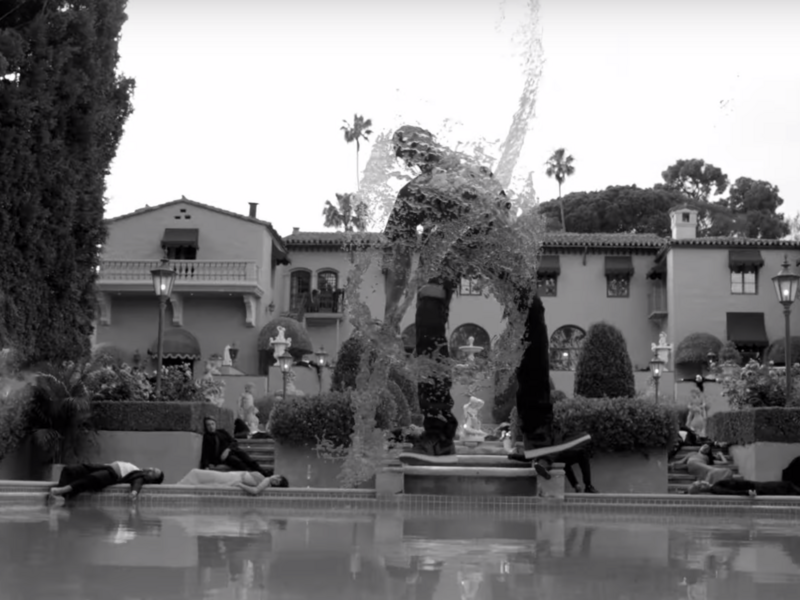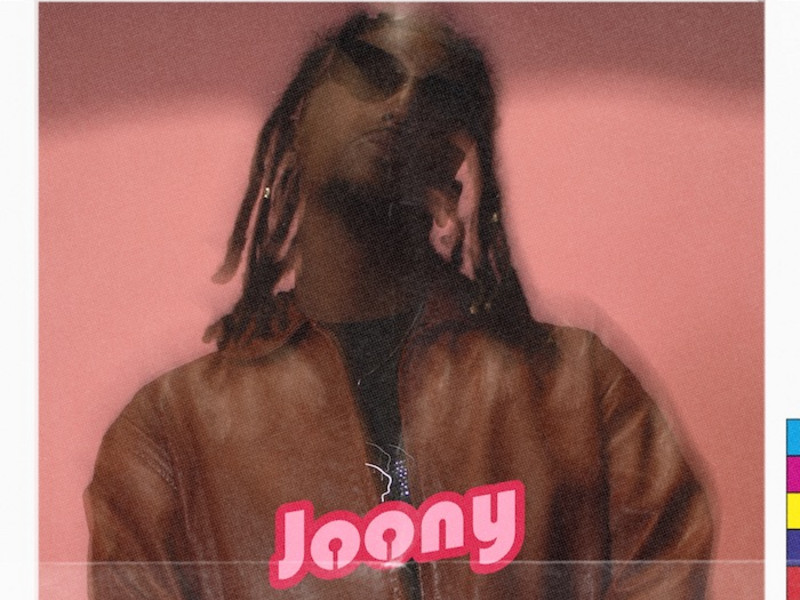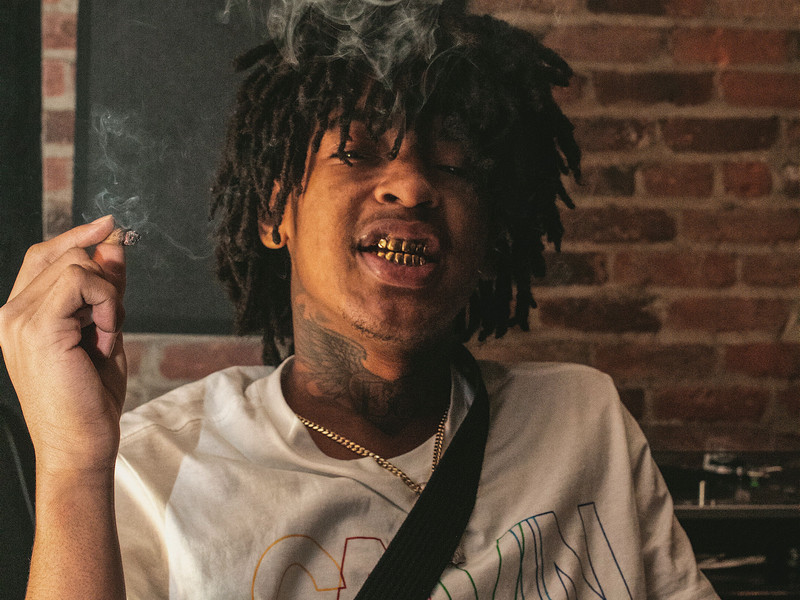Level III Wants to Put You On
From social media management and event promotion to web design and curation and so much more, it takes a village to make Level III happen. In addition to co-founders Dennis Franklin and Antony “Ant” Ramirez, the work of the collective is made possible by Will O’Brien and Faith Cheung, as well as Chim Tasie-Amadi and Lilah Beldner (not pictured above).
office joined Level III during one of their radio sets for this shoot, featuring DJs Suavez, Syd, Shekdash, and friends of the collective. Later on, we caught up with Dennis and Ant and discussed the origins of Level III and their hopes for the collective. Read our conversation below.
Brook Aster— How did the two of you meet? What were the early days of Level III like?
Dennis Franklin— We met sophomore year of college. I was in an apartment on 125th Street and Broadway, [living with my friends] Lani and Will. Ant would come over all the time because he knew Lani, and just hang out, but I didn't really interact with him too much because I had three jobs at the time. I don't know if we ever formally had a conversation the whole of sophomore year.
Towards the end of sophomore year and moving into the summer, we had this group chat of all these Black sophomores who were working in finance that summer. We all were working incredibly hard jobs during the week and we wanted to have parties on the weekends. And Ant had the craziest apartment.
Antony Ramirez— Looking back now, it seems unreal. I lived on West 107th Street. The apartment was huge; it had four rooms, we had a big living room and we also had an outside patio. We would clear the living room area, with the couches pushed to the walls, and you could still sit on the couch, but there would be a lot of dancing space. Then we would set up outside and we would invite everybody. That's when Dennis started DJing.
DF— It was incredibly convenient because in my freshman year, I had been rushing this frat on campus and it just didn't materialize. We had all these speakers in the frat house that then got dissolved. We were told to get all this stuff out of the house by June or something. I was like, well, these would be perfect speakers to bring to this kid's apartment, who I'd only met like three times. We went to Guitar Center and bought this $500 amp and went over to his house and put them up on stands in his living room, and I put the DJ booth in the corner. For the first party, we texted this group chat like, tell everybody you know to tell everybody you know.
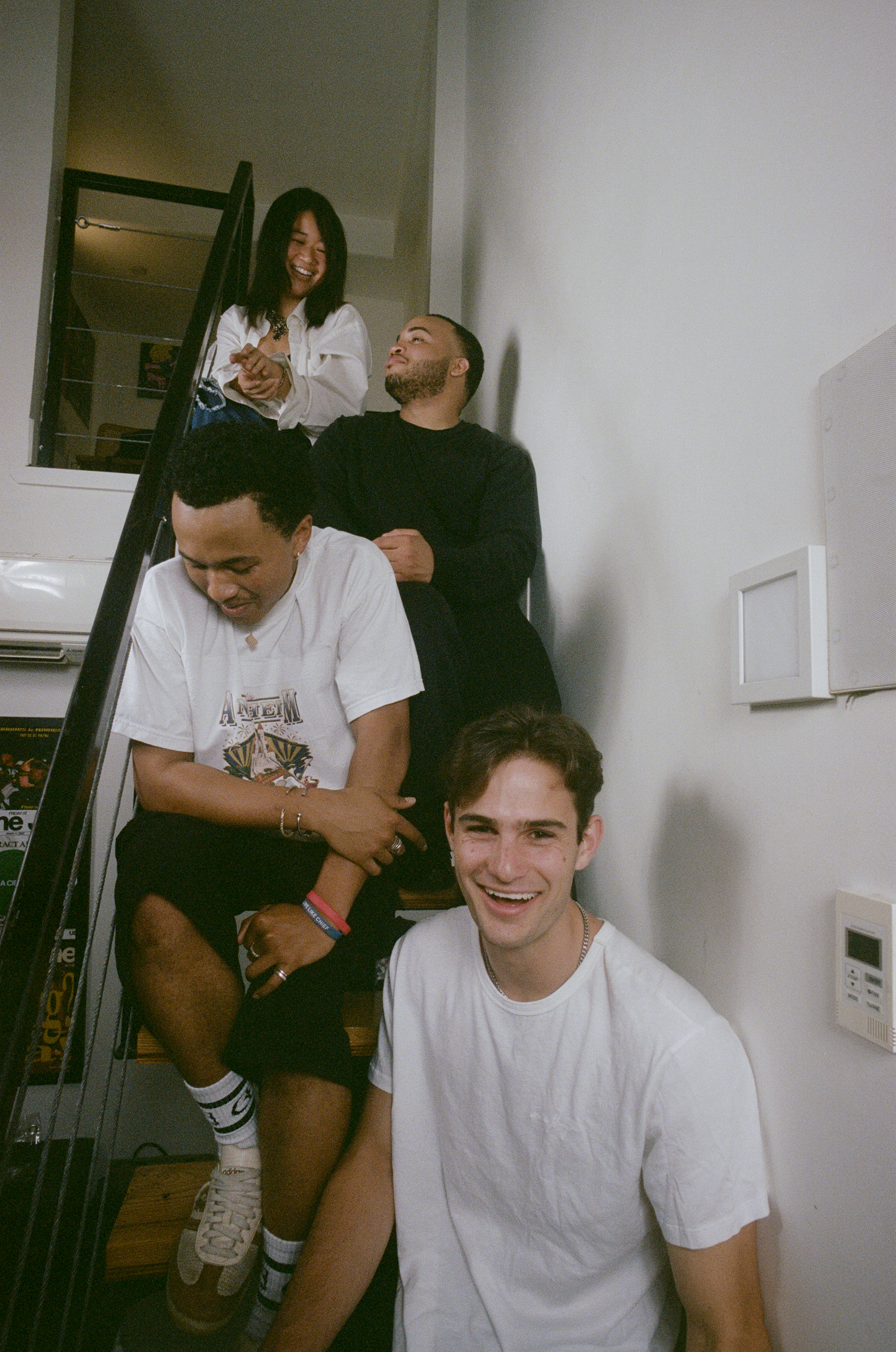
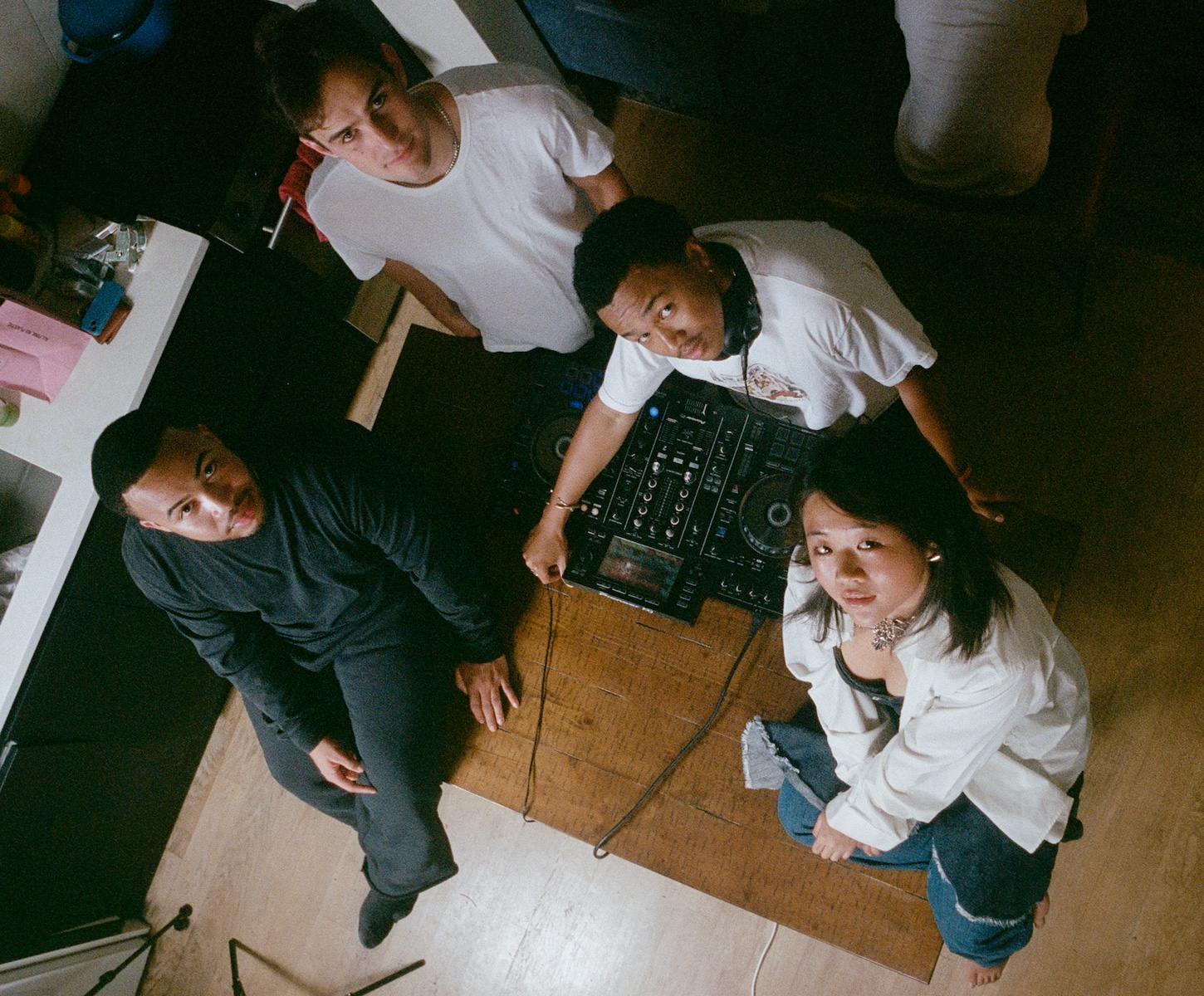
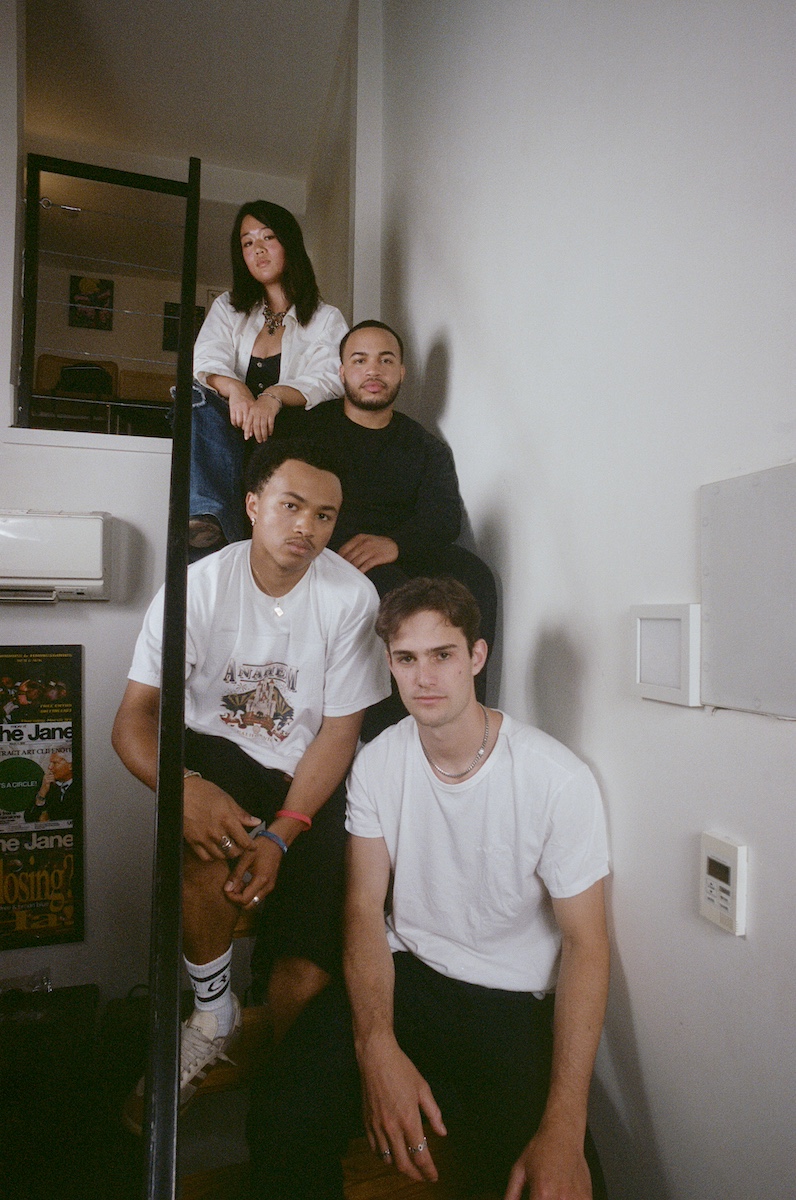
Did you have any criteria for who could come? Especially given that these parties were at Ant's home.
DF— We had no restrictions on who came. We really didn't care, we just wanted to build the party. It was a full BYOB situation. We probably packed it with 250 people in this basement, but then outside, there was a terrace that had these stadium steps on it. You could have like four levels of people just chatting and when you walked out, it looked like a whole function.
AR— We even had a mini trampoline there. But there was no AC, so we had this massive fan in the corner that would just go left to right, and everybody's sweating, sweating, sweating.
DF— People would just come in waves because they would show up whenever they found out about it. So it started around 10, and I'd start djing and we'd probably end every time around 4a.m. or 5a.m. There'd be waves of the standard friends that we know and then there's this whole community of Nigerians who go from Nigeria to London to New York, and they'd all show up too. Sometimes people leave, and show up again at 2 a.m.
AR— We never had any problems with people that came to these parties. There were never any safety issues. Everybody felt welcome and we were never trying to play the cool guy or be like, you can't come into my party. We welcomed everybody, like please invite your friends! I feel like we had a good grasp of who we were inviting generally. Even the strangers we knew were decently good people. And it was amazing.
We were very consistent with throwing them. Sometimes it would be like 8 p.m. and we'd say, “yo, I think we should do a party again.”
DF— It would always be decided maybe an hour or two before it happened. Then people would come from the Lower East Side all the way up to 107th to go to this party at like 8 or 9 p.m.
AR— I would literally go and buy alcohol with my own money, and I was just happy that everybody was having a good time. We’d throw a party and immediately think about the next one. Then we started thinking about throwing more official events, and we did our first big event in Manhattan.
DF— It was an open bar, and we probably sold 350 tickets to that. And it was l the first club that I had ever played at too. It was an interesting experience because for so many of those people, they had only been to parties that summer in this basement that had no structure to it.
We were like, damn, people really will show out for this! The overall community just wanted to be with each other. You always see the familiar faces, the familiar friend groups and whatnot throughout each event.
I'd be remiss to not mention Jaden as well, who was one of Ant’s roommates at the time who unfortunately passed away the fall after that. He was battling heart cancer, and had heart surgeries every single year pretty much since he was born. He was one of the really core people of that group who would get a lot of people to come to the parties.
About 14 of us went to his funeral in Cincinnati after he passed away in September, and that was a big moment for our larger group recognizing how much of a friendship we had all built. That summer had really changed so many people's lives, and gave a lot of us a sense of connection to the city.
DF— We went abroad to London in senior fall, and that was a pretty impactful experience for me. We were going to all these parties that were just so incredibly well run, but also just musically very vast; people exploring genres that we either had never heard of or had been scared to play for other people in the US. London is just so much of a more open space.
I remember I played at a venue called Dalston Den. The ceiling was probably 8 feet high. I was playing all jungle drum and bass, going in on what my knowledge was of that. People came up to the decks and just started banging on the decks — in a good way, taking their shirts off and just going crazy. There was just a different energy there that we really wanted to be able to embrace in like in New York.
We came back full force that spring. We did our first event called Saturday Sessions, and then another one called Open The Garage. That one was really great — it was first one where we were moving away from an audience of mostly college kids. It was just people who found us and thought the event was cool. From there it was like a pretty easy way to start moving ourselves into more exploratory genres, exploratory DJs.
How did Level III Radio come about? How do you view the importance of curation and platforming other DJs?
AR— We had this great space, and we thought, all right, what can we do with this space that adds to the platform that we already have? Dennis and I, for the most part, have a lot of similar musical interests. But we started asking, what are things that I like? What are the things that he likes? And how can we put those together?
We were coming home from our day jobs and just putting DJs on our TV and sitting there and listening and being like, what do you think about this one? Why do you like this DJ? Why is this DJ better than this other DJ? Why should we have this DJ versus that DJ? We began to see the radio as a platform to put together our musical interests when it comes to the DJ scene in New York specifically, and integrate them in a way where the Level III audience gets to see where Ant, Dennis, and anybody else think the sound in the city is going.
And this episode isn't out yet, but there's this Dominican DJ that we brought on called Fried Platano, and he has a really big following within his community. I’m Dominican, and he played some stuff that I personally hadn't heard before. So I reached out, and he came on and did the radio show, and rocked it. It was amazing. I showed him the song he put me on to, and told him, “I owe you for showing me this because you just brought me into a whole different music scene that I hadn't known about. Thank you for that.”
It's something that I hope that people think when they hear Level III Radio. I hope we’re able to contribute to others what he contributed to us.
DF— Halfmoon BK was the platform that I got started on. Originally the show was just me doing mixes and the like. It would play on Saturday afternoons. I wanted a platform for me to be able to showcase my range of sounds across the board, in a more mellow, low-tempo type of space.
But then I thought about all these DJs in the community that I love to go watch and see perform, or who have done shows for us before. I think that being able to showcase their sound in a controlled environment with our audience was something that a lot of people haven't experienced yet, because we had posted sets from the live events that we had done but in live events DJs will come and they'll obviously try to contour their sound in the middle ground between what they like and what the audience may like. So to me, it wasn't as authentic as they could possibly be. I wanted to be able to give them that platform to be able to just do whatever they wanted to do, and every DJ so far has done that. Almost every set that we've had is completely different genre-wise.
The coolest part for me is that both of us are genuine fans of these DJs. They're not necessarily massive touring DJs, but every single person on there, when they start playing, I'm literally gonna stop everything I'm doing to listen because I think they're one of the best DJs that I personally know. There's so many people who are seriously dedicated to their craft.
And we're very young too compared to the majority of the DJs that have been on the show. We're both 23, and the majority of people who are on there are at least 26 or 27, if not older, so we feel very humbled in those settings. These are pros at their game. I'm learning more from them than they are from us, absolutely.

